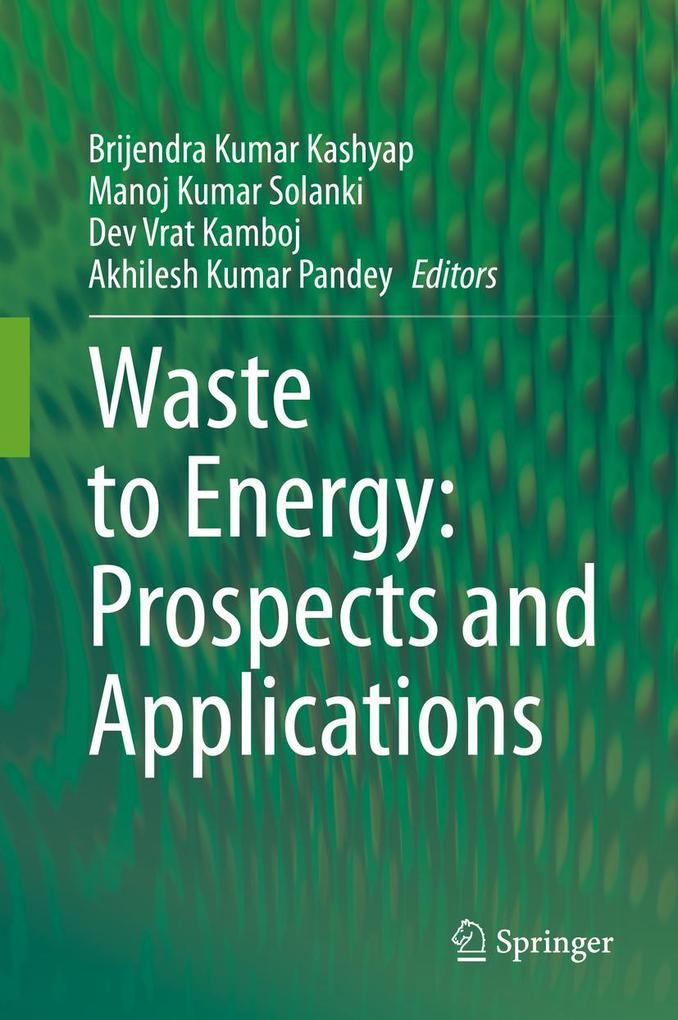
Zustellung: Fr, 04.07. - Di, 08.07.
Versand in 1-2 Wochen
VersandkostenfreiBestellen & in Filiale abholen:
This book addresses waste generation problems from various sectors, including industries, agriculture, and household. It focuses on how modern biotechnological approaches could help manage waste in an eco-friendly manner and generate precious bioenergy. It discusses the inadequate waste management systems damaging the environment and its adverse impacts on climate change-related problems. This book covers all the essential information regarding various types of waste and their management. It is a comprehensive compilation for understanding the efficient generation of bioenergy. It is a relevant reading material (resource) for anyone who wishes to study waste management as Chemist, Biologist, Biotechnologist, Industrialist, Ecologist, Microbiologist, Economist, and all disciplines related to the environment.
Inhaltsverzeichnis
Part 1 Introductory Chapters. - 1 Emerging Frontiers of Microbes as Agro-waste Recycler. - 2 Microbes: the next generation bioenergy producers. - 3 Emerging and eco-friendly approaches for waste management. - 4 Ecofriendly microbial biofuel production from waste. - 5 Bioremediation: Current research trends and applications. - 6 Bioremediation: an approach for environmental pollutants detoxification. - 7 Bioethanol extraction and its production from agricultural residues for sustainable development. - Part 2 Biotechnological approaches. - 8 Byproduct valorization of vegetable oil industry through biotechnological approach. - 9 Omics tools: Approaches for microbiomes analysis to enhance bioenergy production. - 10 Omics (genomics, proteomics, metabolomics etc.) tools to study the environmental microbiome and Bioremediation. - Part 3 Industrial waste management. - 11 Microalgae: Omics approaches for biofuel production and biomedical research. - 12 WasteUtilization and Minimization in Food Industry. -13 Ligninolytic microbes and their role in effluent management of pulp and paper industry. - 14 Production of Polyhydroxyalkanoates using waste as raw materials. 15 Newer Aspects of Waste-to-Valorisation Technologies in Food Industry. - 16 Xylanase in waste management and its industrial applications. - 17 Organic Acid Production from Agricultural Waste.
Produktdetails
Erscheinungsdatum
17. Februar 2021
Sprache
englisch
Auflage
1st edition 2020
Seitenanzahl
448
Herausgegeben von
Brijendra Kumar Kashyap, Manoj Kumar Solanki, Dev Vrat Kamboj, Akhilesh Kumar Pandey
Verlag/Hersteller
Produktart
gebunden
Abbildungen
VIII, 438 p. 60 illus., 48 illus. in color.
Gewicht
834 g
Größe (L/B/H)
241/160/30 mm
ISBN
9789813343467
Entdecken Sie mehr
Bewertungen
0 Bewertungen
Es wurden noch keine Bewertungen abgegeben. Schreiben Sie die erste Bewertung zu "Waste to Energy: Prospects and Applications" und helfen Sie damit anderen bei der Kaufentscheidung.








